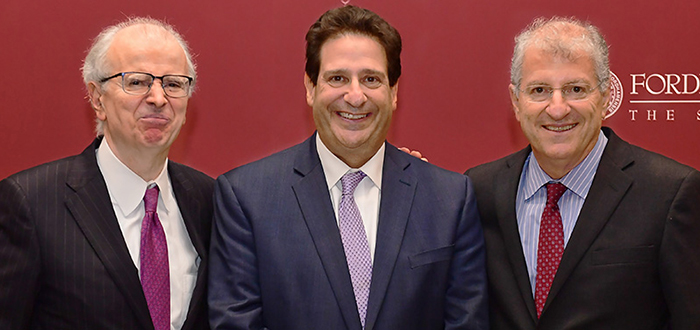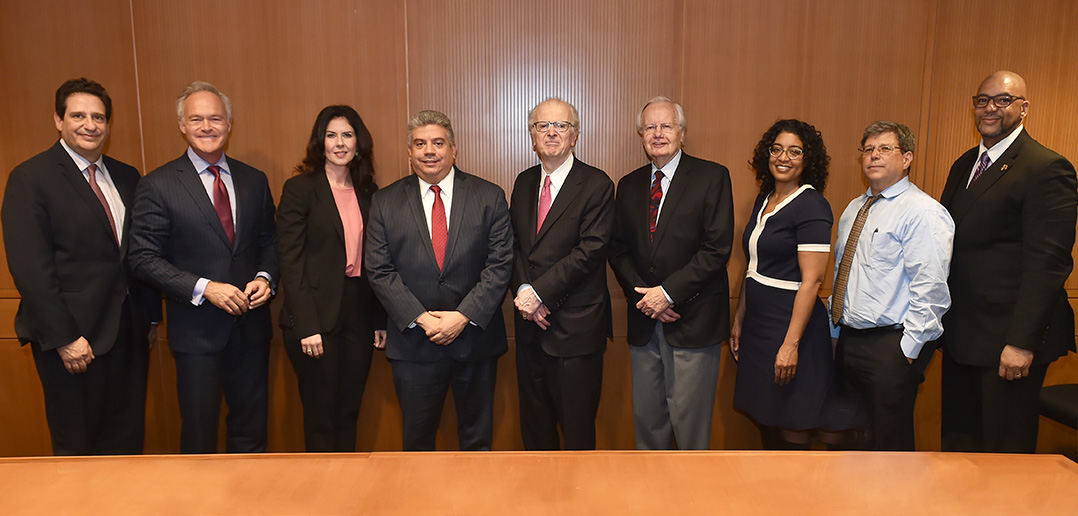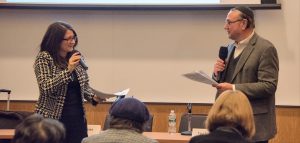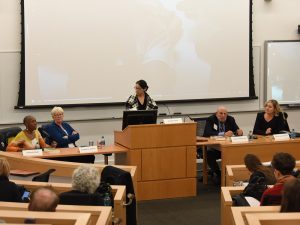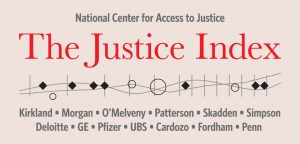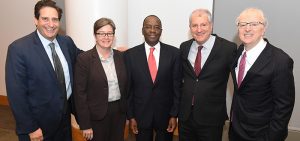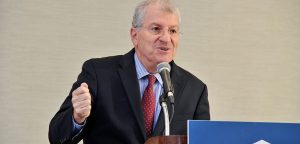Access to Justice (A2J) Initiative
Our Mission
Our society is facing a major crisis in access to justice. Our Law School can make a difference. Fordham's A2J Initiative operates on three levels of engagement.
The A2J Initiative focuses the collective public service energy of Fordham Law School and our community to ensure greater access to justice.
Equal justice lies at the core of our concerns as a service-oriented institution. Equal justice represents the bedrock of our constitutional democracy. When individuals cannot rely on the justice system to protect their most basic rights, they lose faith in their public institutions. They surrender trust. Greater access to justice will help restore trust in our justice system.
A2J Initiative Leadership
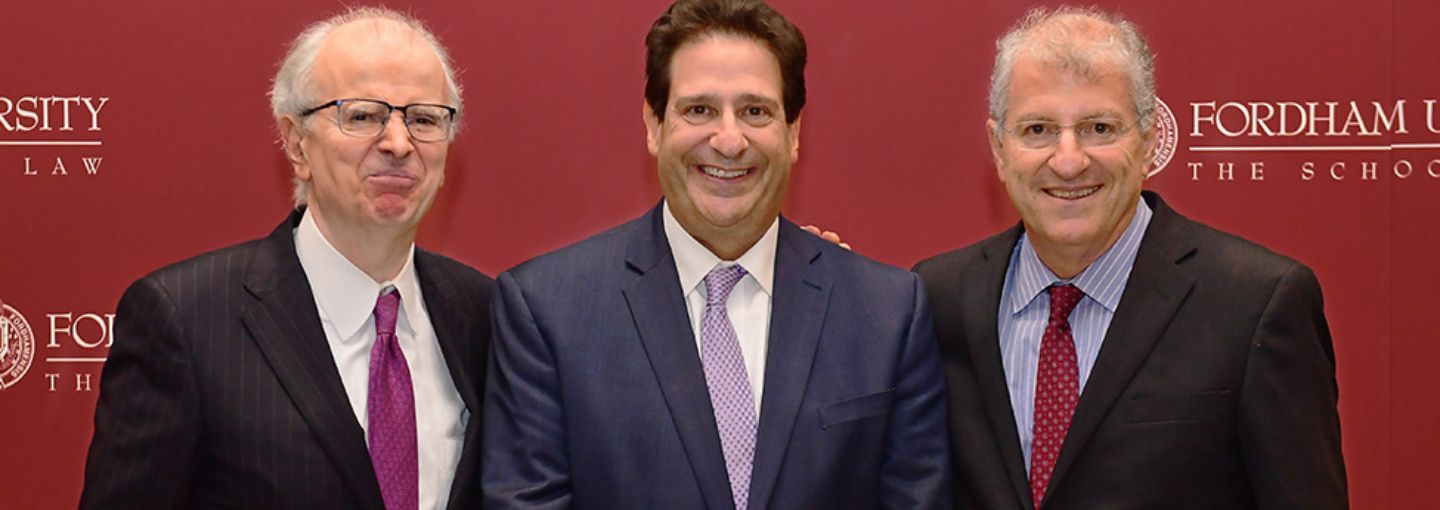
Norrinda Brown is Associate Professor of Fordham Law School. Her scholarship focuses on the intersection of race, gender and access to housing and law and has been placed or is forthcoming in the Northwestern Law Review, California Law Review, the Brooklyn Law Review, the NYU Journal of Law and Social Change, the Michigan Journal of Race and Law, and the Clinical Law Review among others.
She is a recognized expert on housing law issues and has written op-eds and been interviewed for various news outlets, including the New York Times, the Washington Post, Shelterforce and the New Jersey Star-Ledger. Prior to law teaching, Professor Brown spent almost a decade in government practice at the United States Department of Justice in the Civil Rights Division as a trial attorney advocating on behalf of victims of housing discrimination.
She is engaged in professional service on various committees, including sitting on the Executive Committee of the Clinical Section of the American Association of Law Schools (AALS), which is the largest section in the AALS. Professor Brown was awarded the Junior Faculty of the Year award by the Society of American Law Teachers (SALT) in 2021. Professor Brown earned her B.A. from Dartmouth College and her J.D. from University of Virginia School of Law.
Matthew Diller, dean of Fordham Law School (above, center), has worked for greater access to justice throughout his career as a lawyer and legal educator. As a young staff attorney with the Legal Aid Society, Diller worked to restore Social Security benefits to people in need and fought the State of New York to provide adequate housing grants to families on welfare. He wrote extensively on the plight of low income individuals, and families in the courts and oversaw the development of several public-interest legal clinics.
In 2009, Judge Lippman appointed Diller to the Task Force to Expand Access to Civil Legal Services in New York, now the Permanent Commission on Access to Justice. As chair of the Commission’s Committee on Law School Involvement, Diller has led a pathbreaking annual conference, now a national model, that brings law schools, service providers, the courts and the bar to together to focus on the role of law schools in addressing the crisis in access to justice.
Jonathan Lippman, the immediate former chief judge of the State of New York and an attorney of counsel at Latham & Watkins law firm (above, left), will lead the A2J Initiative, fulfilling his own commitment and drawing on the resources of Fordham Law School to expand access to justice issues for those in need.
As the distinguished fellow, Judge Lippman brings his extraordinary record of national leadership on access to justice policy reform to the task of maximizing the impact of our initiative by engaging the Law School’s faculty members and students in the work of expanding access to justice. Judge Lippman has been the key national figure in leading the state court judiciary across the United States to the modern understanding that the most fundamental mission of our courts is to ensure access to justice to all who come before them.
David Udell, the Founder and Executive Director of the National Center for Access to Justice (above, right) – the national nonprofit organization based at Fordham Law School that is working to bring rigorous, principled research and analysis to the task of creating a fairer civil and criminal legal system and a more just society.
At NCAJ, David helps to lead the Fordham Law A2J Initiative, and guides NCAJ’s projects including the Justice Index, an influential online resource that equips reformers to use research, findings and indicators, in combination with data analytical and technological tools, to promote adoption of best policies for access to justice in the 50 states. David is also a co-teacher of the Access to Justice Seminar at Fordham Law.
David was the Founder and Executive Director of the Justice Program of the Brennan Center for Justice at NYU Law School, and has served as a Senior Attorney at Legal Services for the Elderly (NYC) and a Managing Attorney at Mobilization for Justice (NYC). He is a graduate of NYU Law School.
Teaching
.jpg)
Fordham Law’s deep curriculum enables students to obtain the knowledge and skills necessary to make an impact on the crisis in access to justice.
Fordham currently offers courses such as Poverty Law, Consumer Protection Law, Disability Law, Environmental Justice, Race and Law, Immigration Law, Juvenile Justice, and International Human Rights. The School also offers directed courses of study through the Stein Scholars Program and the Leitner Center for International Justice. And numerous other courses are central to the provision of access to justice.
The Law School’s expansive clinical program and its popular public service projects serve as major sources of engagement with access to justice issues. During any given semester, the Law School offers approximately 15 different clinics that serve individuals who are facing difficult legal situations and who may not otherwise have the resources for legal representation. The clinics are supervised and taught by our outstanding clinical faculty. Many of the clinics operate through the School’s own law firm, Lincoln Square Legal Services.
Additionally, the Law School will widen its instructional reach by exploring ways to engage non-lawyers in closing the justice gap and helping to expand the pipeline of students from marginalized and low-income communities into the legal profession.
Direct Service
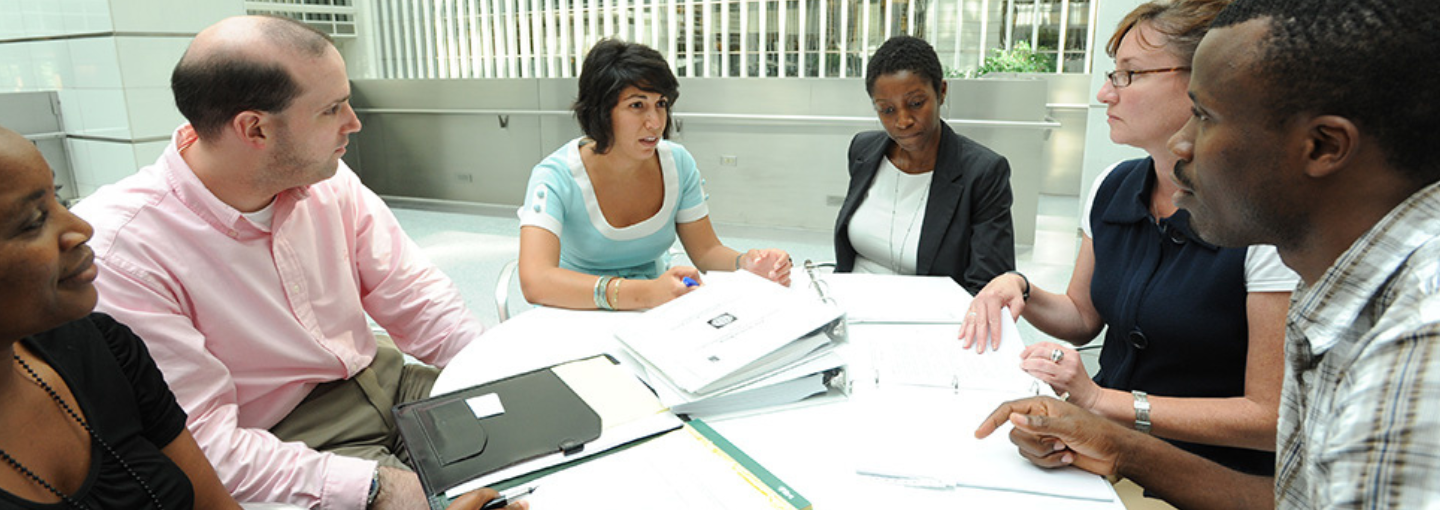
The Law School offers many curricular and extracurricular activities that provide direct services to people in need. Through Lincoln Square Legal Services, the Law School provides representation to low-income clients in a wide variety of fields, including immigration, family law, consumer protection, tax, criminal defense, and investor protection.
PIRC, the Public Interest Resource Center, is the hub of all public service activity at the School. PIRC’s over two-dozen public interest student groups annually fulfill, on average, more than 120,000 hours of public service work during their time at Fordham. PIRC is the place where many students are introduced to the value of public service work and from which their passion for access to justice work is intensified.
The School’s participation in the Pro Bono Scholars Program further strengthens our justice imprint. The program, launched by former New York chief judge Jonathan Lippman, allows Fordham Law students in their last year of law school to devote their last semester to performing pro bono service through an externship, clinic, or legal services provider.
Scholarship, Research, and Advocacy

The justice gap is prompting communities across the country and throughout the world to consider new models for helping litigants who are unable to afford private lawyers and unsuccessful in qualifying for free civil legal representation. Through the work of David Udell’s National Center for Access to Justice, Fordham Law has situated itself more fully with policy reform initiatives that are dedicated to assuring access to our civil and criminal justice systems.
The NCAJ’s projects include the award-winning Justice Index, which encourages adoption of best policies for access to justice by tracking and comparing the performance of state courts in serving low-income litigants. NCAJ also produces reports, hosts events, and carries out public education and public advocacy initiatives.
The Law School’s many innovative centers and institutes play an important role, as they have for decades, with their own research and advocacy, keeping access-to-justice issues at the front of their work.
Events
A2J SUMMIT 2018
The Criminal Justice and Immigrant Rights Movements
David Udell Interviews Movement Builders Robert Rooks (Criminal Justice Reform) & Frank Sherry (Immigration Reform)
SPRING 2018
Rikers: An American Jail
Documentary screening and discussion with acclaimed journalist Bill Moyers, Scott Pelley, and Experts












